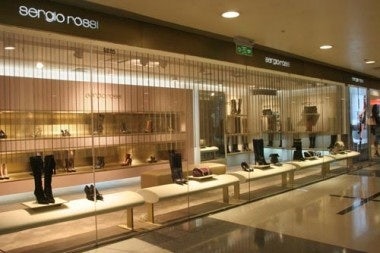Moves Come After Growing Calls From Business Execs To Reduce Import Taxes#

Business execs (and retailers) hope a reduction in China's luxury tax could see more shoppers buy locally
Months after growing calls by prominent businesspeople like Dalian Wanda chairman Wang Jianlin for the Chinese government to reduce its stiff luxury tax, this week, Ministry of Commerce spokesman Yao Jian indicated that Beijing is paying attention. When asked by a reporter about the yawning price gap between luxury goods in mainland China versus Europe, North America or Hong Kong, Yao said, "the direction [the government] will take is to further reduce import tariffs on middle- and high-end products." Yao admitted that the price gap has become a more pressing issue recently, adding, "similar products differ in price in different markets, and companies have specific pricing strategies in particular markets. However, this has become a more prominent issue recently, especially in the luxury sector [in China]."
China's luxury and import duties are among the highest in the world, a fact that has seen mainland Chinese head out of the country in droves to do their high-end shopping. According to a recent study by Bain & Company, over 50 percent of luxury purchases by Chinese shoppers in 2010 were made overseas, owing to lower prices, better selection, and greater "show-off" value. Still, price remains the key driver of outbound luxury shopping; As Jing Daily noted earlier this year, China's luxury tax tacks on a premium of up to 30 percent on imported high-end goods, one that shoppers can easily sidestep with a quick jaunt over to duty-free Hong Kong. According to a survey conducted by China Ministry of Commerce on 20 luxury brands in a range of product categories including watches, handbags, apparel, wine and electronics, once luxury taxes are factored in, prices for these items in mainland China average 45 percent higher than in Hong Kong, 51 percent higher than the U.S., and 72 percent higher than France.
At the press conference this week, Yao Jian said that this price discrepancy is counterproductive for China. Seemingly paraphrasing the words of Dalian Wanda chairman Wang, who said in March that the country's high luxury taxes only lead to “Chinese people [sitting] on airplanes to deliver jobs and tax money to foreign countries”, Yao said that luxury purchases made by Chinese travelers overseas are not counted into custom statistics. As such, the trade balance is skewed. Although China has sought to address this by more strictly enforcing its so-called "Rule 54", which is designed to impose retroactive taxes on luxury purchases made outside of China, the country is underestimating its customs duties by billions of US dollars annually, Yao noted.
Discussing possible solutions with reporters, Yao said addressing the luxury tax issue requires a comprehensive solution. On one hand, it requires the creation of a favorable domestic distribution environment for foreign companies. On the other hand, he said, foreign brands should set a fair and reasonable pricing strategy for the mainland China market.
According to China Daily, if the government does indeed enact a reduction in customs duties for high-end items, it could boost domestic spending -- a development that major brands have been trying to bring about via ever-increasing investment in their mainland China operations. Still, even if Beijing does cut down on its luxury tax, consumers will still have to contend with a number of other import and value-added taxes that will likely keep prices for major luxury brands higher than in Hong Kong or even Hainan island. So, while lowering the luxury tax could spur more domestic high-end spending and add more jobs, it would be far from a panacea.